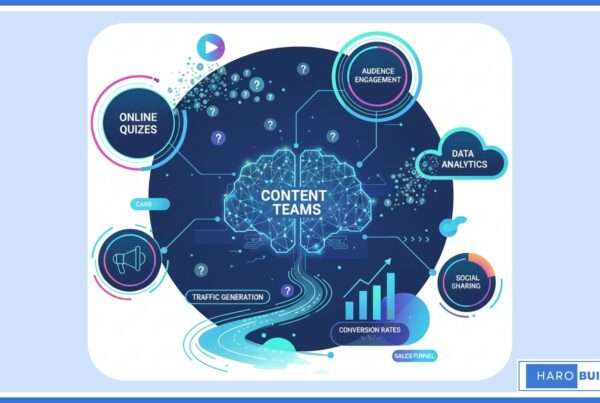
Starting a business is often portrayed as a thrilling leap into independence, freedom, and success. The stories we see on social media and in the media glamorize startup life, emphasizing breakthrough moments and big wins. But behind every successful entrepreneur is a series of hard-learned lessons, most of which never make it into highlight reels. The truth? Much of what it takes to succeed in business is only learned the hard way—through trial, error, and unexpected setbacks.
In this in-depth article, we’ve gathered powerful insights from seasoned founders who’ve been through the trenches. From burnout and perfectionism to team-building and go-to-market failures, these entrepreneurs share what they wish they knew before they started. Their experiences, mistakes, and wake-up calls are packed with wisdom for anyone launching or growing a business today.
Starting Without a Strategy Leads to Burnout
When launching a business, many founders fall into the trap of believing that hard work alone guarantees success. Hustle culture celebrates waking up early, grinding all day, and sacrificing everything for the dream. But as Danyon Togia, founder of Expert SEO, discovered, effort without direction often results in burnout rather than breakthrough.
In his early days, Danyon worked nonstop, waking up before dawn, skipping meals, and pushing himself into exhaustion. “I thought success came down to brute force,” he recalls. But over time, he realized this approach was unsustainable. His turning point came when he shifted focus to high-leverage, strategic actions, like targeted outreach and deep work. Slowing down allowed him to think more clearly and operate with purpose.
Key Takeaways:
- Work smarter, not harder. Focus on 1–2 high-impact tasks daily.
- Burnout isn’t a badge of honor. Prioritize sustainable energy and mental clarity.
- Strategic planning > relentless hustle.
Outsourcing Key Functions Can Slow You Down
Speed is a startup’s superpower. Yet too often, founders hand off critical components to outside agencies, thinking it will save time. Imad Ali, founder of Kitt, learned this the hard way during his earlier venture, Alley, where he outsourced all tech development.
The decision created delays and a broken feedback loop. Every change required external coordination, slowing down releases and frustrating users. With Kitt, Imad built an in-house product team from day one. The difference was night and day: tighter iteration cycles, faster experimentation, and greater user satisfaction.
Why In-House Teams Win:
- You control speed, iteration, and feedback.
- Direct communication enables real-time problem solving.
- Core functions should stay close to the founder’s vision.
Perfectionism Is a Business Killer
Striving for excellence is admirable, but when perfection delays progress, it becomes toxic. Shamil Shamilov, CEO of dNOVO Group, openly admits that perfectionism nearly caused his startup to fail in year one. He obsessed over branding, processes, and internal polish before signing a single client.
That delay cost him valuable momentum and market feedback. “Perfection is a moving target and the market doesn’t wait,” Shamil warns. Today, he prioritizes testing campaigns in the wild and iterating quickly based on real-world results.
Mindset Shifts That Accelerate Growth:
- Launch before you’re ready.
- Feedback > Flawlessness.
- Done is better than perfect.
Marketing Is Just as Critical as the Product
Many first-time founders fall for the “build it and they will come” fallacy. Jayson DeMers, founder of OutreachBloom, made this mistake with his first startup, focusing exclusively on product development and ignoring marketing until it was too late.
The result? A great product nobody knew about. In his next venture, he did the opposite, prioritizing marketing from day one. Through aggressive content marketing, SEO, and advertising, Jayson built awareness early and drove results faster.
Balance Between Product and Promotion:
- Marketing should start before the product is finished.
- A great product needs a loud voice.
- Treat visibility as a core pillar, not a side task.
Promoting Your Brand Should Never Be an Afterthought
Even agencies that excel at marketing for clients often forget to apply those same principles to themselves. That was the case for Matthew Goulart, founder of Ignite Digital. Despite delivering top-tier strategies to clients, he undervalued his own agency’s visibility, and it nearly cost them long-term growth.
The wake-up call came after losing a pitch to a competitor with a stronger online brand presence, not a better portfolio. Since then, Matthew’s team has treated their marketing with the same urgency and investment as they do for their highest-paying clients. “Self-promotion is not ego—it’s survival,” he asserts. By elevating their brand, they now rank nationally, attract larger clients, and operate with the scale and reputation they once only dreamed of.
Actionable Shifts:
- Build your personal and business brand with intention.
- Treat your own business like your best client.
- Visibility builds trust, authority, and deal flow.
Conclusion
Every entrepreneur enters the game hoping for a smoother path than the last. But no amount of reading, planning, or prep work replaces the wisdom gained from experience. The founders quoted in this article didn’t just survive mistakes—they used them as stepping stones to greater clarity, confidence, and results.
From battling burnout to rediscovering the power of relationships, from letting go of perfection to embracing distribution as a priority, these lessons serve as a compass for new and seasoned founders alike. If you’re on the journey, take heart in knowing you don’t have to learn everything the hard way. The real secret? Listen to those who have already done.



